Opinion: Catch me if you can
 -File Photo
-File PhotoWith the Supreme Court (SC) holding almost daily hearings pertaining to the "Panama Leaks" beginning Nov 1, aspirations were high among all Pakistanis that a closure for the festering sore affecting the country's well-being for nearly 8 months was imminent.
Suddenly out of the blue the case was surprisingly adjourned till next year, a good three weeks before the present Chief Justice (CJ) of the SC retired. All arguments may need to be presented anew if other than the new CJ, a fresh SC bench is constituted. Almost like a surgeon leaving the patient waiting on the operating table a fortnight for the next doctor and his surgical team to appear. The Panama scandal is back to square one; one guess who does that help? The incoming CJ Mian Saqib Nisar has a great reputation for dispensing justice according to the Constitution without fear or favour. The presumption to pre-judge his future stance is grossly unfair.
With corruption in the judiciary becoming chronic, CJ Anwar Zaheer Jamali declared 2015-16 as the year of judicial accountability. Unfortunately, however, the CJ's focus was only on the subordinate judiciary. In an article 'Judicial Accountability', Faisal Siddiqui, a lawyer writes, "Consider just one fact: since the enactment of Article 209 in 1973, no judge of the high court and SC has been removed from office.
Are we to believe that there has been, or is, no judge of the higher judiciary who has been, or is, guilty of corruption? Sadly, the potential threat to judicial independence by state and societal vested interests has become an excuse to put on hold judicial accountability - an absolute necessity." Empowered under Article 209 of the Constitution and brought back to life recently, the Supreme Judicial Council (SJC) remains ineffective, plagued by the delays that have become the norm in our court system. To quote my friend Major Haider Mehdi (Retd) verbatim from his widely read blog, "The Supreme Court That Ran Away" full of home truths would get me cited for contempt of court. The deep disappointment at the delay in SC hearings is not surprising, the vehemence of the bitterness is.
Accountability in democracy has become a pipedream in Pakistan. The powerful can get away with murder. An even application of accountability provides the underlying framework for true democracy, intervention by the army mostly happens when the people lose faith in the justice being dispensed.
General Bajwa rightly believes civilian authority should prevail; he will be hard put to look the other way at continuing mis-governance which has become part and parcel of our body politic because of blatant nepotism and corruption.
Some of the Corps Commanders had completed their two-year term. General Raheel Sharif deferred their impending postings so that the incoming CoAS to select his own team, a courtesy denied to him by Kayani. With many Lieutenant Generals superseded and seven vacancies needing promotions from Major General to Lieutenant Generals, Qamar Bajwa provided solid evidence of his being very decisive by following Richard Nixon's advice, "never debate a decision to death". Maybe one or two were unlucky not to be promoted but then again all those promoted were on merit and deserving.
Punishments made public enhances respect for the institution. Accountability within the military avoids "findings" from being made public, giving rise to wrong perceptions that uniformed personnel are never given due punishment and that slogans of honesty and accountability are meant only for politicians and civilians. This is patently wrong! General Raheel Sharif set an excellent precedent by sacking some corrupt senior officers, delivering the strong message that the troops were not making sacrifices in the field so that the corrupt could live a life of luxury.
The avarice and greed of a handful of individuals has made the entire army suffer. Raheel Sharif's unfinished agenda including targeting such criminals, their lavish lifestyles and properties evidencing their living beyond their known means of income, more than sufficient to indict them for corruption.
Privileged to be the CoAS of one of the finest fighting forces in the world, can Bajwa gloss over the planting of the fabricated story echoing Indian PM Modi's venomous diatribe against the Pakistan Army, proven in battle and rendering great sacrifices? Ignoring the blatant black propaganda risks many more Cyril Almeidas coming out of the woodwork. Pervez Rashid's sudden public reappearance is just testing the waters. Or can Bajwa ignore Zardari's diatribe against the Army or the recorded evidence of his criminality in confessional statements rendered by the likes of Uzair Baloch, Dr Asim Hussain and a host of others?
Zardari's expected return would signal that the Army has come to terms with criminality among our politicians. Any hope for accountability of the elite then goes up in smoke. While adhering to the letter of the Constitution, can Bajwa ignore the spirit of the same Constitution which mandates him to protect the citizens of Pakistan from both external and internal foes? Otherwise, the Constitution is not worth the paper it is written on, only a document which expensive lawyers use at will to protect their criminal clients.
The common man's perception of sleaze in high circles was reinforced by the fairytales rendered before the Honourable Judges of the SC during the "Panama Leak" hearing; they could put Hans Christian Andersen to shame. Only the most gullible, or motivated, can stomach such nonsense. Between the age of 15 and 21, confidence trickster, check forgerer, and impostor Frank William Abagnale, Jr assumed no fewer than eight identities, among them an airline pilot, a physician, a US "Bureau of Prisons" agent and a lawyer. Escaping from police custody twice (once from a taxiing airliner and once from a US federal penitentiary) before he was 21 years old, he spent less than five years in prison before the FBI decided he would be more useful to society on the side of the law, in effect "setting a thief to catch a thief".
As a Consultant and Lecturer for the FBI Academy and field offices, he now runs his own financial fraud consultancy company. Crime film "Catch Me If You Can," with a star-studded cast directed by Steven Spielberg, was based on Abagnale's real-life story.
Not only for those engaged in looting the country at will but also for those waiting impatiently for their turn to loot "Catch me if you dare can" represents their dismissive attitude towards NAB's NRO-tainted accountability and accurately sums up the real objective of our democracy, not to serve the people but themselves.
(The writer is a defence and security analyst)

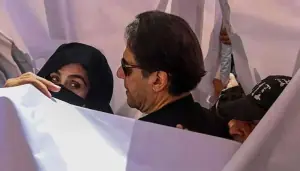
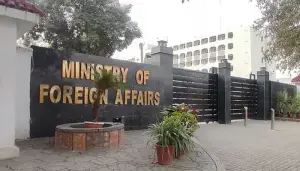


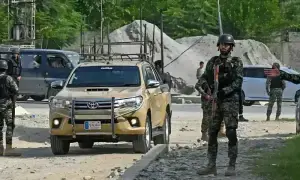
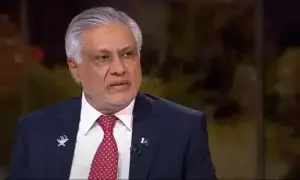

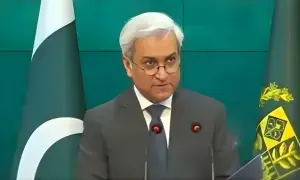




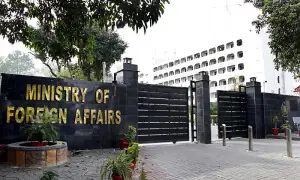


Comments are closed on this story.